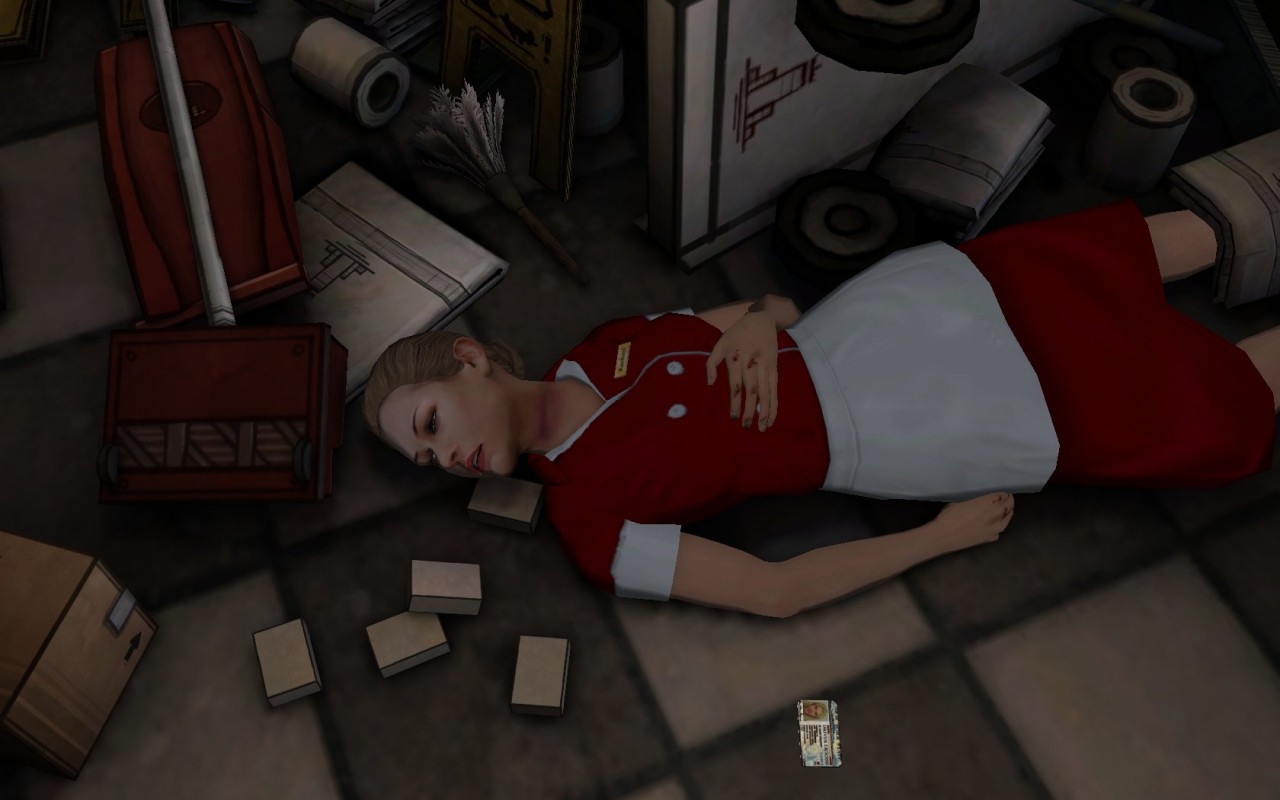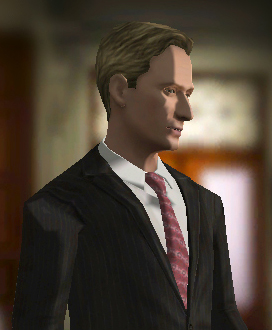There's something to be said for the comforting predictability found in crime dramas on television. At the end of the day, you can sit down and know that if you invest an hour with these characters, they'll eventually figure things out. It's nice to watch other people figure things out. Telltale apparently realized this too when they created Law and Order: Legacies, an interactive crime drama that you can surely bet on being resolved within the hour and with minimal effort.

The premises of the three cases you'll be working on are compelling enough. Mutilated motel maids and worked-over working girls are saved from total predictability with the occasional dramatic twist. After watching a cutscene, you're thrown into a conversation with one of the characters. From the interrogation screen, you may click on non-branching conversation topics to interview a witness or question a suspect until all topics are exhausted. After the interviewee makes a claim, you're often asked a yes or no question as to whether or not you believe them. If you don't believe them and you're on the right trail, you're provided with a series of reasons why the person is lying. Then it's up to you to choose the most damning evidence.
After each scene is complete, you're shown how many correct choices you made and either move on to the next cutscene or are forced to redo the sequence. It's sort of entertaining, or as much so as a dressed-up quiz could be. Things start to fall apart, however, when the questions become condescending in their obviousness — questions you'd ask a third grader to test whether or not they're breathing. “So, DO you think Mr. Johnson, as he stands surrounded by all the murder weapons, blood on his shirt, and a smirk on his face, committed the crime?” Of course you do.

Each episode ends with the trial, which is a lot more interesting. During the trial sequence, you're either tasked with asking the right questions of your witnesses — trying to stay on-topic and make an appropriate factual or emotional appeal, or deciding whether or not to object to something the defendant is asking. If you choose to object, you must back up your objection with a reasonable allegation. Each successful objection and interview wins you overall points with the jury, and you can tell at any time whether or not they're currently in your favor. The trial is broken into multiple sequences, each being repeatable for a more favorable outcome if desired.
The final element of the gameplay is simple hunting and pecking for evidence. You're given a limited space to pan around in and must draw a circle with your mouse to select items that look suspicious to you, all preferably within a specified number of tries. Overall, these sequences feel tedious and annoying.
Like a television show, each scene leads to a highly convenient discovery that ushers in a new sequence, and the people the characters (and yourself) think are guilty usually are. There's nothing a player can do to push the game off-track, and as a result you feel much more like a casual observer to the action than a participant. The formulaic gameplay is typical of the detective genre circa-2002, but after games like LA Noire and even later entries in the CSI series set new standards with story, interactivity, animation, and branching plot paths — Law and Order: Legacies' gameplay and story feels especially dated. Further implying Telltale phoned this one in, its backgrounds look like they were made by a high schooler who just recently discovered Photoshop's most heavy-handed and tacky filters and used them on his urban vacation photos in excess. The stories and dialog aren't bad, but they aren't anything to write home about either.
It could be argued that it was never Telltale's intention to make a triple-A title. As a budget game, especially for mobile devices, it's fairly harmless and entertaining. Furthermore, its audience, assuming they're mostly casual players, will probably be forgiving of its flaws. For everyone else though, I could only recommend this game to the most fervent of Telltale or Law and Order fans.
Max killed three llamas so he could get into a court room to find out how realistic Law & Order's backgrounds are.
